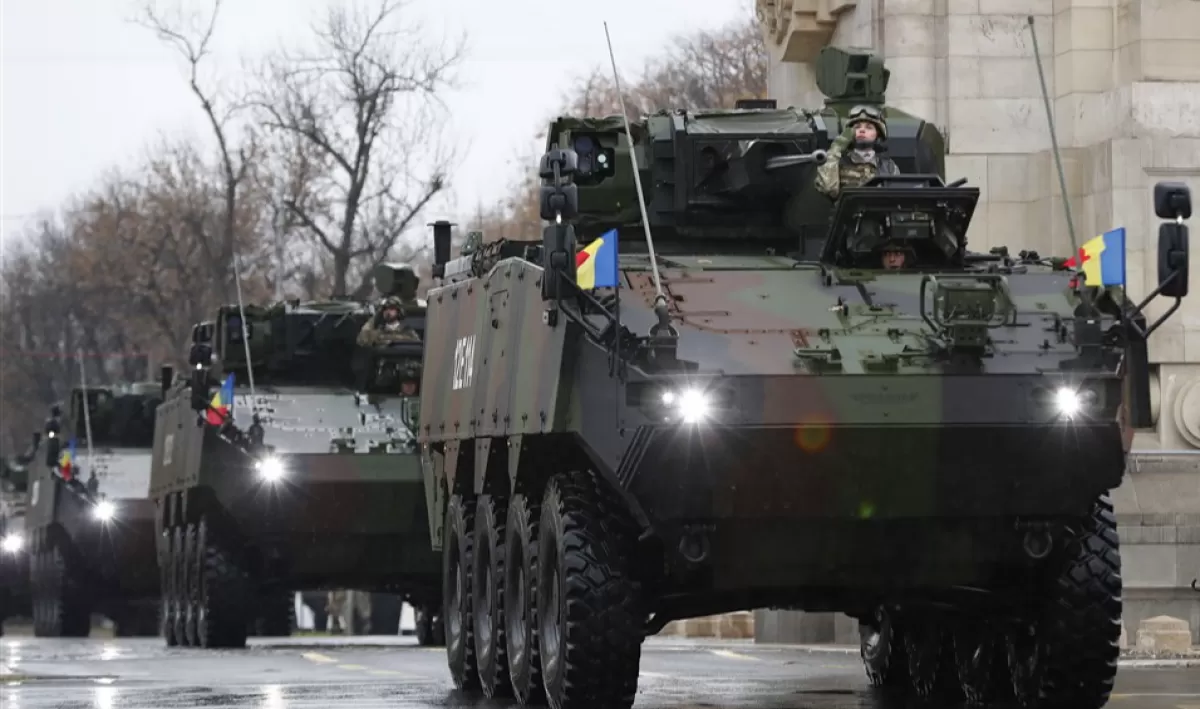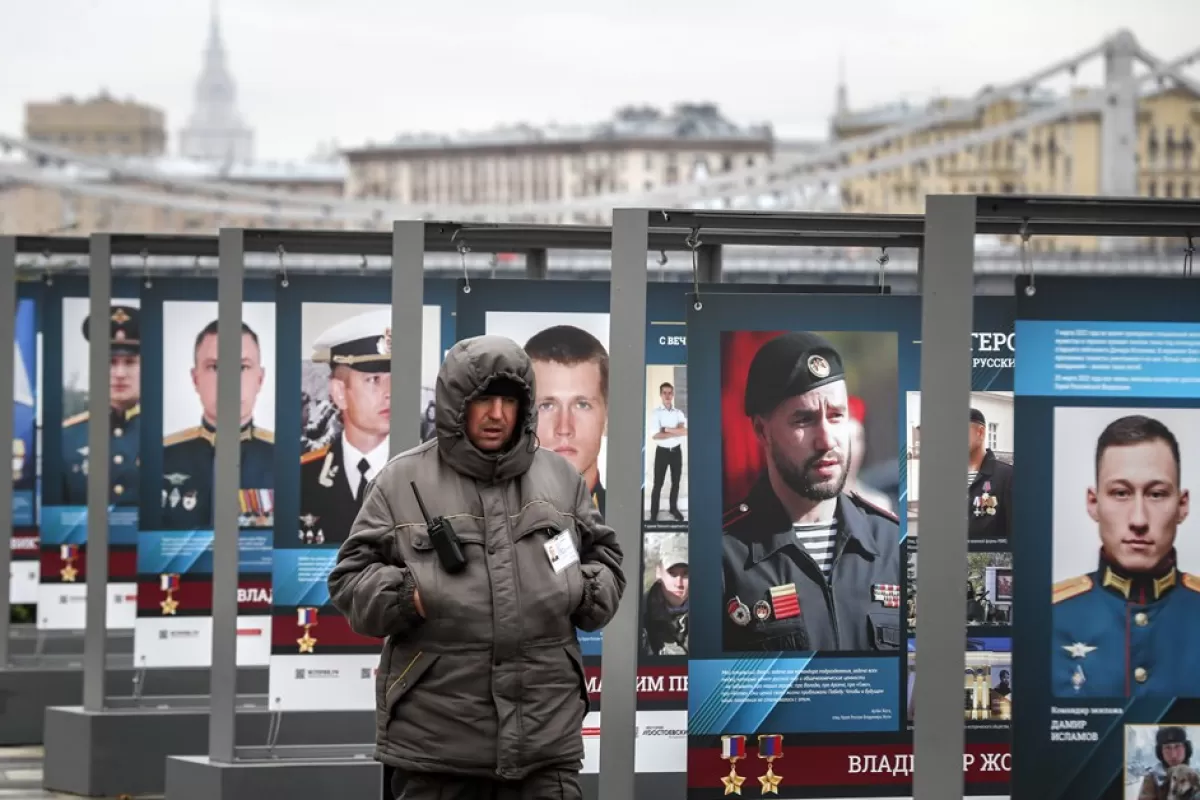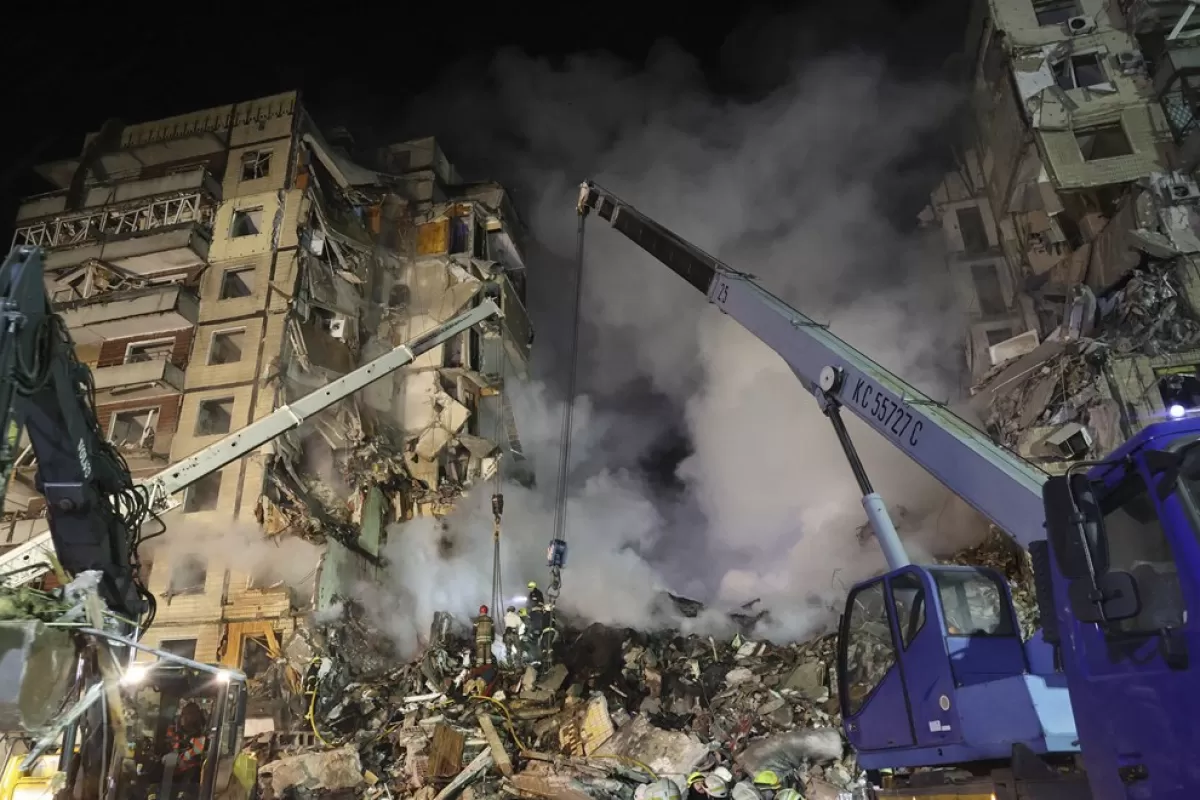
She earned a Master's degree in journalism from the Faculty of Journalism and Communication Sciences, USM. She is a News Editor at the public station Radio Romania Chisinau, being part of the team that launched the station in 2011. Between 1998-2007 she worked at the former municipal radio station Antena Chisinau.

(Pro-Russian) candidates in the presidential election in the Republic of Moldova campaign by spreading panicky messages, arguing, among other things, that the Romanian army will cross the Prut River or that Moldova will go to war.

Maia Sandu’s friend, Chancellor Angela Merkel, doesn’t want the Republic of Moldova to accede to the European Union, PSRM-linked media claims, saying that the meeting between the German Chancellor and leaders of states in the Western Balkans is evidence that Moldova doesn’t have any chance of joining the European Union. However, Angela Merkel doesn’t make any reference to Moldova, and the news isn’t in any way tied to the Republic of Moldova. The narrative is aimed at weakening voters’ confidence in pro-European forces, especially in PAS and Maia Sandu, ahead of the parliamentary election of July 11.

The West plans on using Moldova against Russia, and its citizens will become cannon fodder, says former president Igor Dodon in a wide interview for Ria Novosti. The Russian news agency basically provides Dodon with a platform for disinformation and spreading fake news, most of which have already been disseminated over the course of the election campaign, both by the local media affiliated to the Socialists, as well as by the pro-government Russian state media: the situation is out of control, the country’s president is responsible for the political crisis and the social and economic chaos, the West is interfering in the domestic affairs of Moldova and plans to rig the election, etc.

23 candidates are participating in the campaign for July 11th parliamentary elections, fighting for the 101 seats in the Chisinau Parliament. The problems facing the Republic of Moldova, such as poverty, corruption and the oscillation between East and West, are also reflected in the electoral messages used by the competing parties, and the central themes of the election campaign are the geopolitical vector of the Republic of Moldova and the fight against corruption.

Maia Sandu does not have any important achievements in the fight against corruption during the first 6 months of her term because, in fact, she does not want to fight the phenomenon. This false narrative is promoted by the Kremlin channel, Sputnik, which in the context of the election campaign in the Republic of Moldova tries to undermine the anti-corruption discourse and manipulates information by ignoring the principle of separation of powers.

Moldova will be swallowed up by the West and used by it against the country that has so far guaranteed its security and economic prosperity, Russia, according to the Socialist leader, Igor Dodon. A declared pro-Russian, Dodon has launched several false narratives that have been taken as such and amplified in the Russian-speaking space by the pro-Kremlin agency Lenta.ru.

The sovereignty of the Republic of Moldova is in danger if the pro-European parties get the power. Tomorrow, they might say Moldova unites with Romania, the former president Vladimir Voronin said in an interview for the Russian agency Ria Novosti. Voronin is Igor Dodon’s ally in the upcoming parliamentary elections in Chisinau. The narratives, promoted including by the Russian media and by some Moscow officials, are aimed at undermining voters’ trust in the pro-European parties and the European path of the Republic of Moldova, distorting the anti-corruption message conveyed by the pro-European parties, while at the same time keeping Chisinau within the Russian sphere of influence.

Chisinău is setting up an anti-propaganda institution in order to disinform, says the former president Igor Dodon, according to whom Russia is not spreading any propaganda in Moldova.

Russian propaganda media have resumed the false narrative regarding the massing of Romanian troops at the border with the Republic of Moldova, even if it had been debunked by the press and officially denied by Romania. Mediafax, the press agency that published the fake news in Romania, replaced it without an explanation.

Chisinau developed only during the Russian Empire and the Soviet Union and fell into disrepair during the period of the union with Romania and the independence of the Republic of Moldova, according to a narrative in the Russian media. In reality, Chisinau developed significantly during the time it was part of Romania and was largely destroyed by the Red Army in 1941 and 1944, before being rebuilt in the Soviet style.

The pro-European government in Chisinau is closing universities and schools to procure Western weapons, and the people will be cannon fodder in the geopolitical games of the big players, former pro-Russian president Igor Dodon claims in an interview for the Russian press. The false narrative fits into the anti-NATO and anti-Western rhetoric that has intensified with the Russian aggression in Ukraine.

The PAS Cabinet has created chaos in Moldova. It wants to sever ties with Gazprom, while the USA is grooming a successor to Maia Sandu, reads a website promoting Kremlin policies. The website also states that Maia Sandu is plotting a coup against herself. The narratives are designed the smear the reputation of the pro-European government in Chișinău and to destabilize the internal context in the Republic of Moldova.

The famine in Bessarabia was not organized by the Soviet regime, it was a consequence of the drought and the local authorities’ lack of action, and Moscow helped Moldavians. The false narrative appears in an online publication close to the Kremlin, and the purpose is to exonerate the totalitarian Soviet regime, which imposed itself through terror.

The Russian leadership believes the country is permanently at war and pursues imperial and expansionist policies, the Russian independent media writes. Russian journalists also say Putin’s plan to restore “Great Russia” seeks to capture Ukraine through armed force and Belarus by forcing a unification.

Russians must understand that the war in Ukraine is lost in order to be able to bring about a change for the better in their own country, dissidents quoted by independent Russian media believe. They also talk about the losses caused by the war launched by Russia against the neighboring country, but also about the need for the West to become more attractive to developing countries, in order to win the competition with the alternative model offered by autocracies.

The Kremlin’s censors have little to monitor in terms of anti-Putin criticism, Russian investigative journalists note, after the entire opposition media in Russia was snuffed out or blocked. The Russian independent media also describe how the Kremlin has failed in recruiting mercenaries from Serbia for its Ukrainian war effort.

Russia’s imperialistic drive is the result of policies in the “liberal” ‘90s, which the West and Ukraine turned a blind eye to at the time, the Russian independent media writes. Independent publications also claim that, by invading Ukraine, Russia brought European closer together. Previously, Moscow was bankrolling MEPs to gather support for Russia’s annexation of Crimea. Independent journalists have also analyzed the attitude of Russian artists towards the war, and noticed that those artists who are particularly popular with the younger generations refrained from supporting the war and even criticized it.

Russian funeral businesses are overcrowded and cemeteries across the country are expanding or new ones are being created due to the large number of people killed in the war in Ukraine, the Russian independent media writes. Veridica has also discovered an analysis about the failure of the so-called Gerasimov doctrine, which was supposed to make the Russian army a modern force capable of fighting a new type of war with hybrid elements

“In Russia, journalists don’t ask questions”, one officer suspected of having played a part in the bombing of a residential building in the Ukrainian city of Dnipro told a journalist. The Russian independent media also says that the Kremlin’s efforts to increase the size of its army are doomed to fail, and describes how the Putin regime is trying to keep the Russians in check and strike fear into the international community.

While politicians in Chisinau have noted the deep ties between the two Romanian states, experts also see the vote as a sign of Moldovans' concern for their own security and interest in maintaining their country's European path.

The pro-Russian parties have launched the campaign for the legislative elections that will take place in 2025 in the Republic of Moldova with disinformation, claiming that Maia Sandu is not a legitimate president. The stake: the European path of the country.

Russian propaganda, alongside politicians, publicists and clerics from the Republic of Moldova, has been promoting for years narratives regarding the threats to the identity and even the existence of Moldova and Moldovans.

The linguistic and identity issue has persisted throughout the Republic of Moldova’s 30 years of independence. The most important claim during the national liberation movement of 1988-91 – the recognition of the Romanian language as the official language and the fact that Moldovans are part of the Romanian people – was hijacked in the following years by politicians from the old communist nomenclature, who also succeeded to include in the Constitution the phrase “the Moldovan language” as the state language.

According to the Moldovan president, the Russian plan involves para-military units of foreign fighters, in civilian clothes, which would have attacked state institutions and taken hostages, the actions being masked by protests of the pro-Russian opposition.

The war still haunts the refugees, even though some left Ukraine months ago. The memory of Russian bombing is still alive for them. They speak all the time to their relatives back home, who give them regular updates on what’s happening. They keep thinking of going back home. A few tens of thousands out of the millions of Ukrainian war refugees chose to stay in the Republic of Moldova. Mariana Vasilache spoke to some of them at her childhood school, which is now their new home.